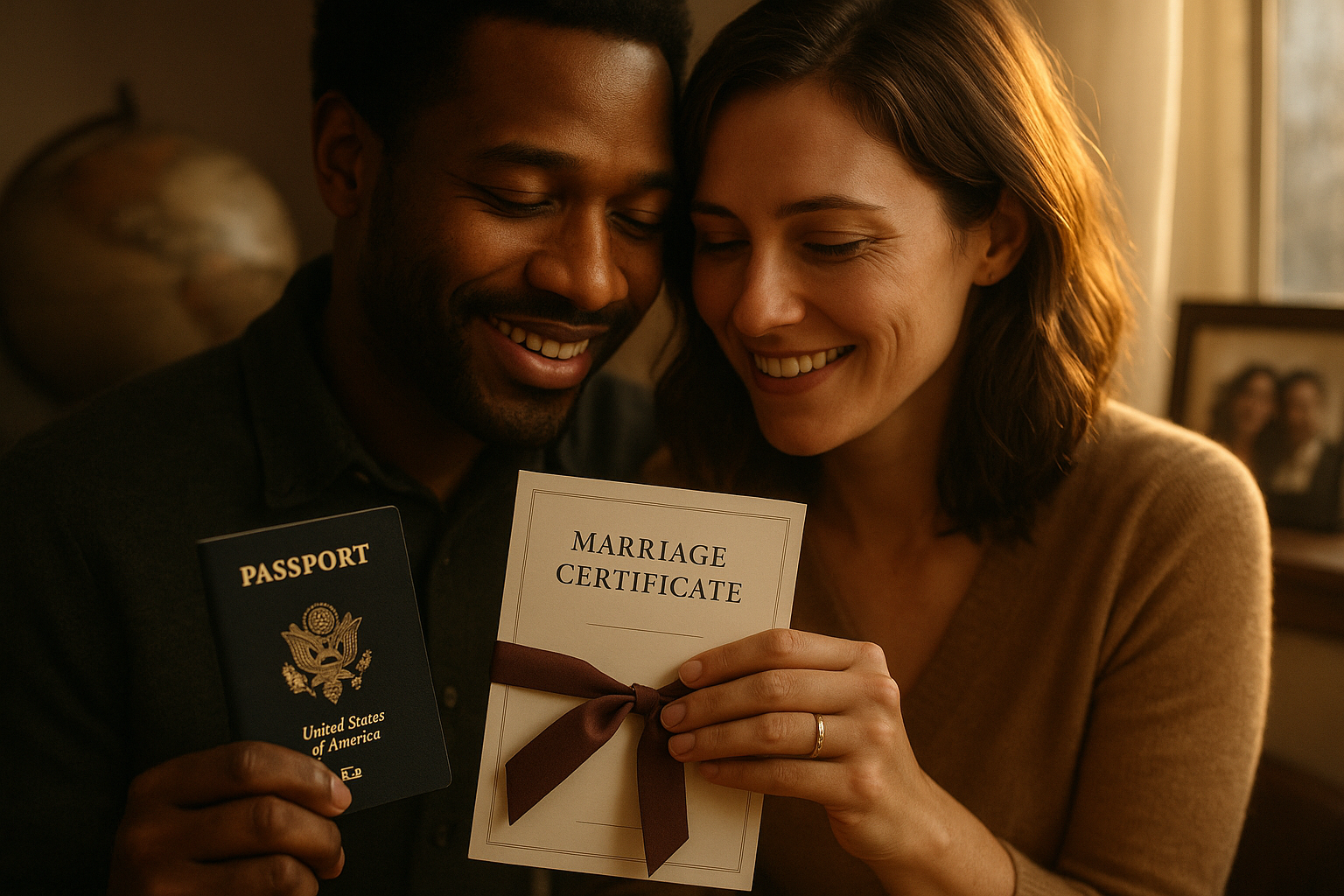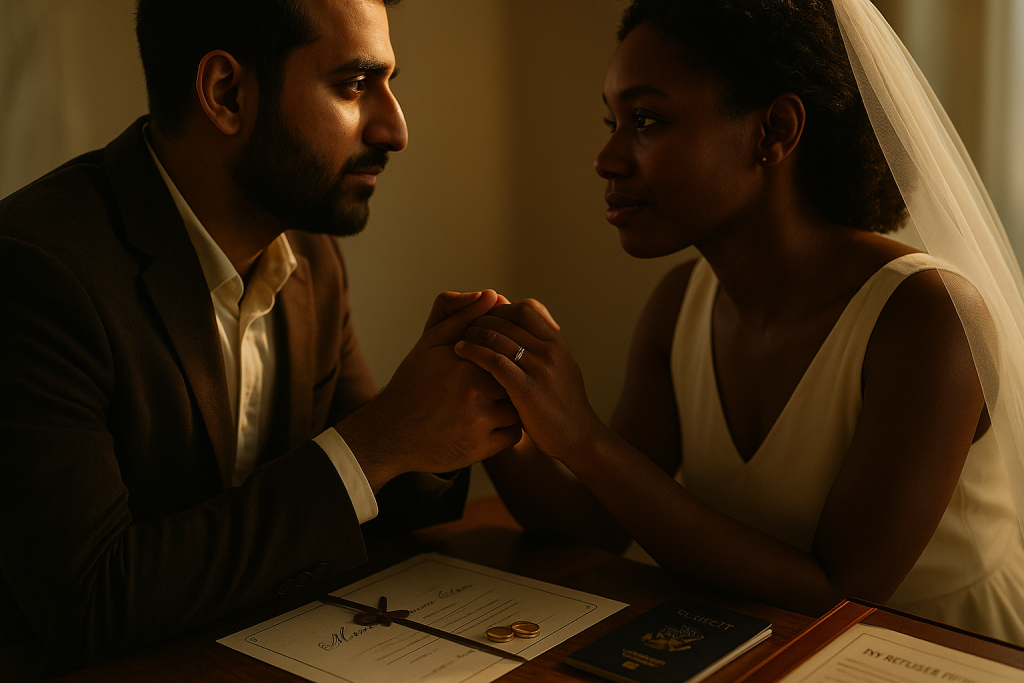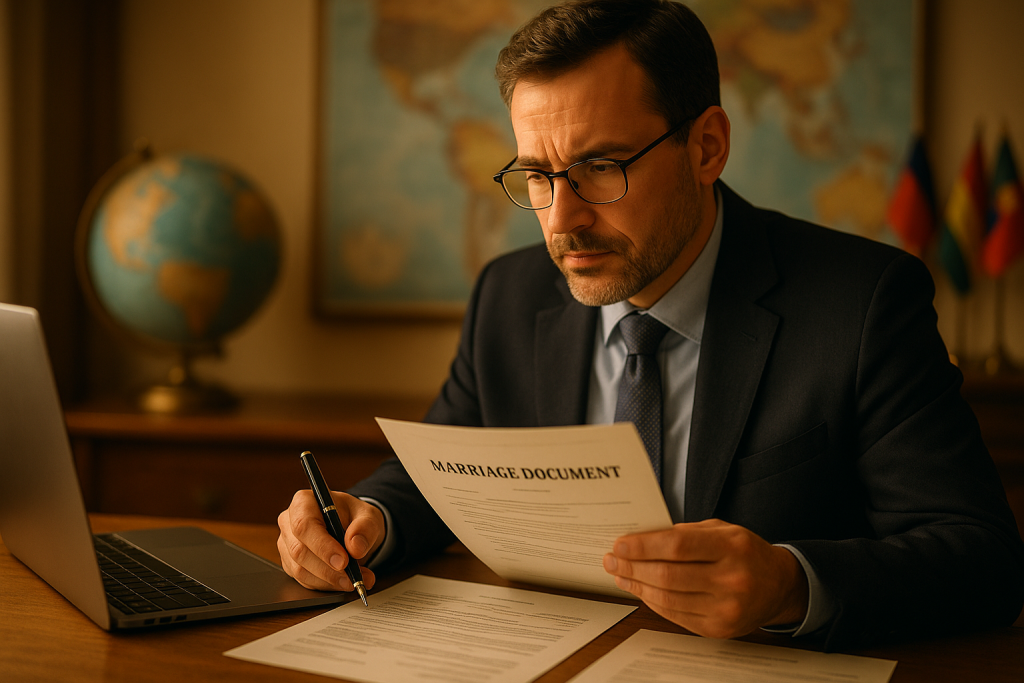In today’s interconnected world, love knows no borders. For international couples, virtual marriage offers a convenient and legally recognized way to unite, even when separated by vast distances. But how does getting married online impact your path to citizenship? Let’s explore the intersection of virtual marriage and citizenship rights.
Understanding Virtual Marriage
Virtual marriage allows couples to legally tie the knot through online platforms like Zoom. This process is especially beneficial for international couples facing geographical and logistical challenges. By opting for an online wedding, couples can overcome these barriers and celebrate their union without delay.
Legal Recognition of Online Weddings
One of the primary concerns for couples considering a virtual wedding is its legal validity. In the United States, certain states, such as Utah, have embraced virtual marriage, allowing couples worldwide to obtain a marriage license and have their ceremony conducted online by a licensed officiant. This means you can get married online legally, regardless of your physical location.
Virtual Marriage and Immigration
For couples planning to use their virtual marriage for immigration purposes, it’s essential to ensure that the marriage is consummated, as required by the U.S. Citizenship and Immigration Services (USCIS). This means that after the virtual ceremony, the couple must have physical relations. Evidence such as travel records, photos, and affidavits can help establish this requirement.
Citizenship Rights for Spouses
Marrying a U.S. citizen can pave the way for obtaining citizenship. After marriage, the non-U.S. citizen spouse can apply for a green card (permanent residency). After three years of residing in the U.S. as a green card holder and being married to the U.S. citizen, the spouse may be eligible to apply for U.S. citizenship through naturalization.
Special Considerations for Same-Sex Couples
Same-sex couples also benefit from virtual marriages. The U.S. has expanded birthright citizenship to babies born abroad to same-sex couples, ensuring equal rights and recognition for all families.
Obtaining an Apostille for International Use
If you plan to use your marriage certificate outside the U.S., you may need an apostille to authenticate the document. This certification verifies the authenticity of your marriage certificate for international use. It’s advisable to check the specific requirements of your country or consult with immigration experts to ensure your virtual marriage is recognized internationally.
Frequently Asked Questions
Is a virtual marriage legally binding?
Yes, when conducted through authorized services, virtual marriages are legally binding and recognized.
Can we get married online if we’re in different countries?
Yes, location is never a barrier. Whether you’re in a long-distance relationship, on deployment, or living abroad, you can legally marry online.
How do we obtain our marriage certificate after a virtual wedding?
After the ceremony, the officiant files the necessary paperwork, and the state issues your marriage certificate, which can often be obtained digitally.
Is an apostille necessary for using our marriage certificate internationally?
Yes, an apostille may be required to authenticate your marriage certificate for use abroad.
Are virtual marriage services inclusive of all couples?
Yes, reputable services are inclusive and cater to all couples, regardless of gender or nationality.
Embarking on a virtual wedding journey can be both exciting and convenient. By understanding the legal implications and ensuring all steps are properly completed, your online marriage will be as valid and binding as any traditional ceremony. If you have further questions or need assistance, feel free to contact us at Virtual Same Day Marriage. We’re here to help you every step of the way.
For more information on how to get started, visit our How it Works page.
Ready to tie the knot? Get Married today!




